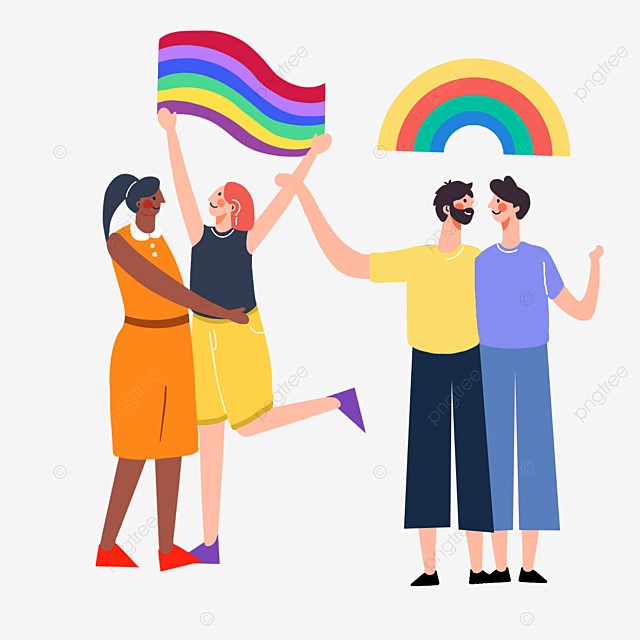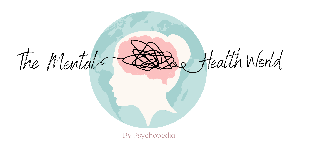
LGBTQ is the acronym for Lesbian, Gay, Bisexual, Transgender, and Queer. Every individual has a sexual orientation and sense of self.
Gender identification determines how we feel as male or female or different, while sexual orientation determines who we are attracted to. It doesn’t have to be based on biological sex all of the time. LGBTQ refers to people who have different sexual orientations or gender identities than the majority of the population.
It takes more guts to stand out and assert one’s unique identity. Members of the LGBTQ community have struggled with this issue their entire lives. A fight like this might put them under a lot of stress. Long-term struggles to prosper in the face of social stigma can be exhausting.
The World Health Organization took nearly two decades to recognize homosexuality as normal. However, society’s attitude toward the community members endures.
Mental wellness is often overlooked when it comes to staying healthy. It is, however, one of the most crucial components. Much of our day-to-day life revolves around it. A terrible mental health day can have a variety of consequences, including making it more challenging to complete tasks. It could be as simple as failing to do an errand. It can also be more serious, such as failing to show up for work.
Like everyone else, the lesbian, gay, bisexual, transgender, queer, and questioning (LGBTQ) population faces these issues. However, they may have even more significant difficulties in caring for their mental health. This is frequently linked to current prejudices.
LGBTQ people are more prone to suffer from mental illnesses including sadness and anxiety. Furthermore, the stigma associated with mental diseases can deter people from getting care

What impact do mental health issues have on the LGBTQ community?
People in the LGBTQ community are more likely to suffer from mental illness. According to a recent study, 61 percent of people suffer from depression, 45 percent from PTSD, and 36 percent from anxiety disorders. Furthermore, 40% of transgender people have tried suicide at some point in their lives. This is roughly nine times the rate in the United States as a whole.
There is no one-size-fits-all explanation for why these differences arise. However, shame and trauma play a role. Many LGBTQ people experience difficulties in receiving adequate mental health care. According to a Rainbow Health poll, 10% of people put off getting care or didn’t receive it at all because of healthcare providers’ disdain or discrimination.
Being LGBTIQ+ does not guarantee that someone will have mental health problems, but it does put them at a higher risk of developing them.
According to a recent Stonewall study, the following happened in the preceding year:
- Half of the LGBTIQ+ people have suffered from depression, and three out of five have suffered from anxiety.
- One in every eight LGBTIQ+ people aged 18-24 attempted suicide.
- Almost half of the transgender people have considered suicide.
What impact does a person’s identity have on their mental health?
We must be able to live and be loved in our true selves. We feel less stressed and have more self-esteem when we have these items. There has been a lot of research done on the subject of identity. The findings reveal that we feel entire when we are able to accept our identity. This gives us more self-assurance about who we are.
How can we treat those who identify as LGBTQ with respect?
It is possible, to be honest, and interested in someone’s life without seeming intrusive. Pose open-ended inquiries. Follow the person’s lead when it comes to language phrases. If you’re not sure, just ask. Without being defensive, be willing to make mistakes and try again. Inquire about people’s preferred pronouns and use them. Make an apology and move on if you make a mistake. Do not inquire about a transgender person’s birth name or the medical processes taken to transition.
How can we assist someone who is experiencing difficulties?
Give help in the same manner you would to anyone else. Starting with active listening is an excellent place to start. It’s also a good idea to inquire about how you might assist. It is also critical that we consistently demonstrate respect and acceptance via our words and deeds. Reflect on the person’s partner and identification language. Pose open-ended inquiries. Also, learn how to be an effective ally.
Pride is a gathering place for members of the LGBTQ community. As a result, isolation is reduced. It also improves visibility. It’s quite empowering to recognize your own identity in the context of your surroundings. It confirms our sense of belonging and love. It also honors the LGBTQ community’s long and illustrious history. This encompasses both sorrow and joy. The feeling of belonging to a community has been linked to better health.
Embracing diversity is being open to all individuals, ideas, and points of view. It’s about treating others with respect.
Blog by: Saloni Lad

